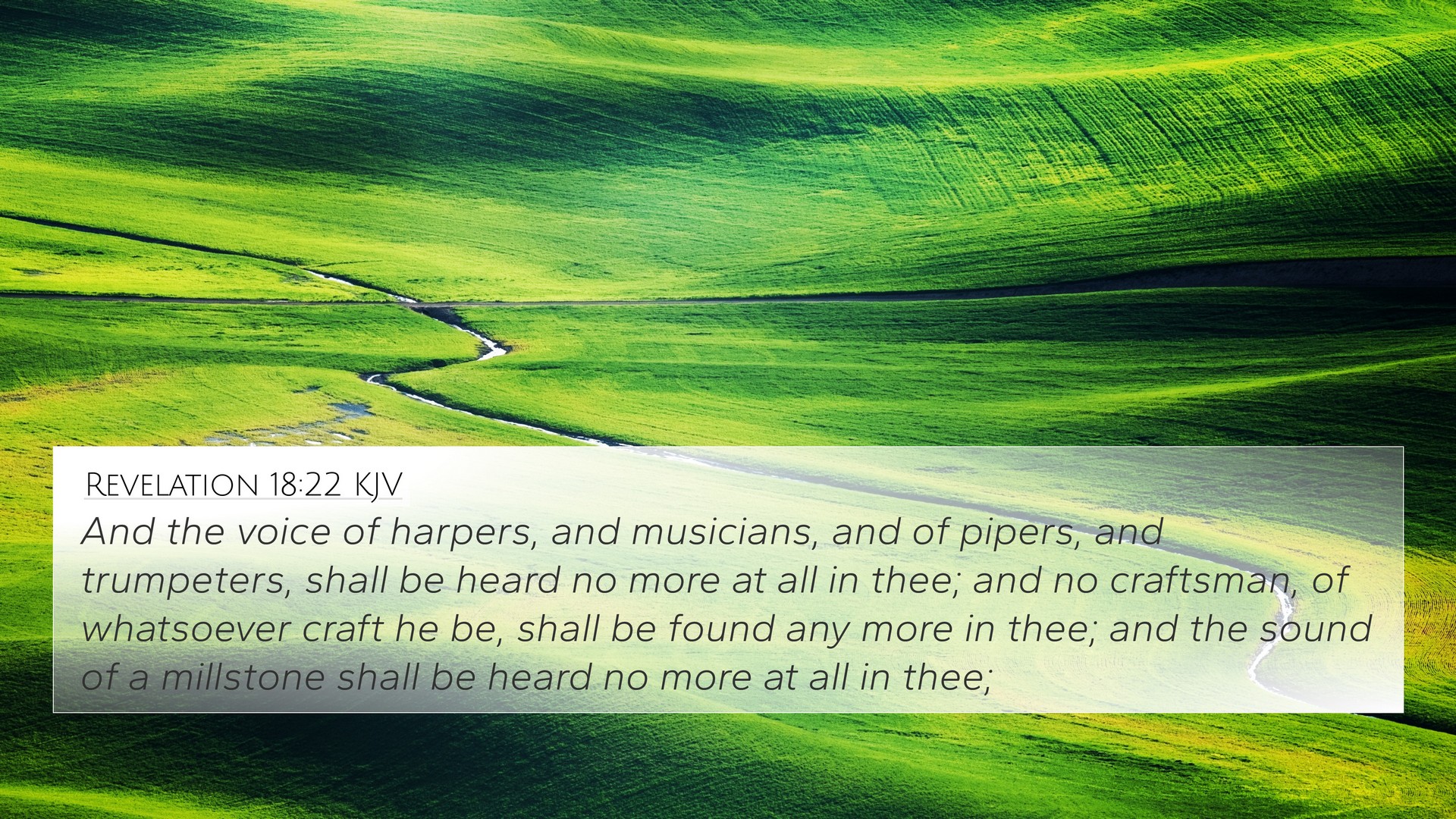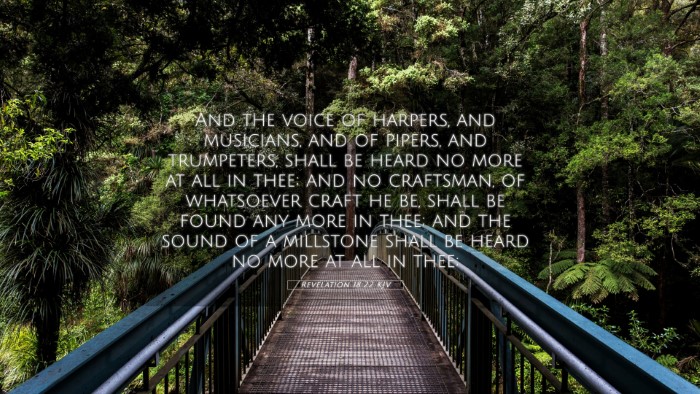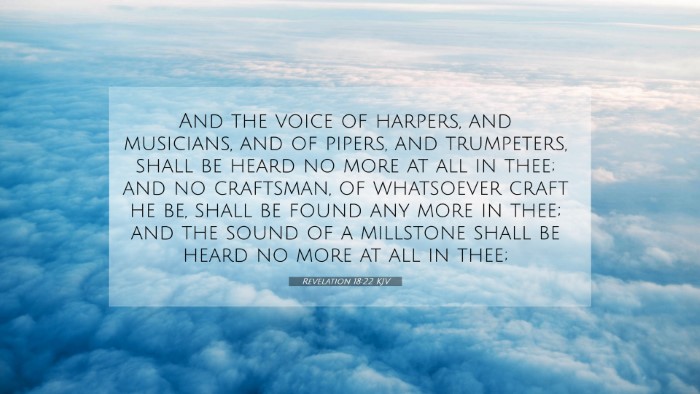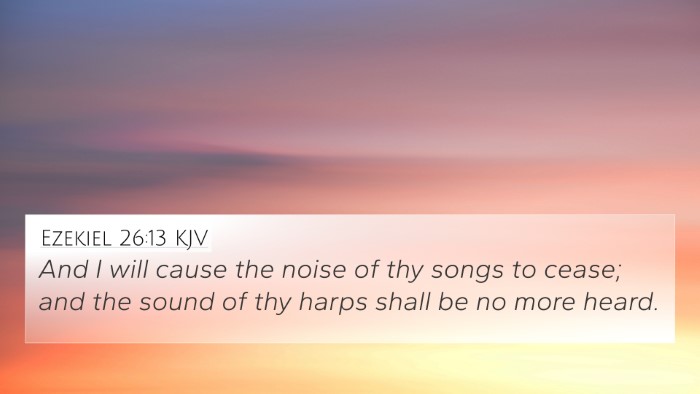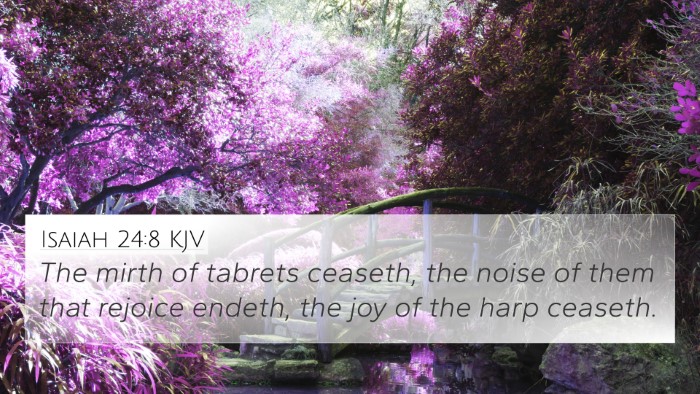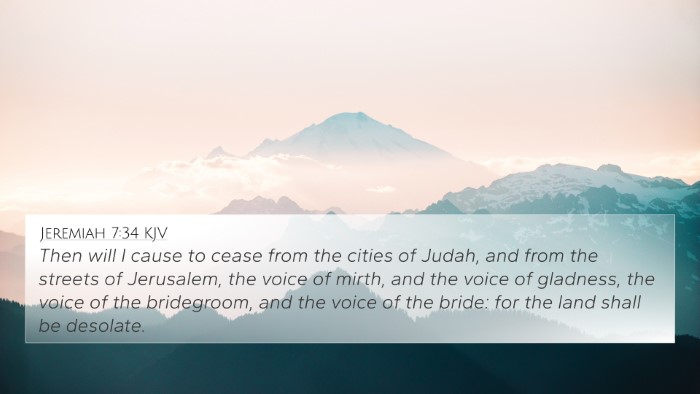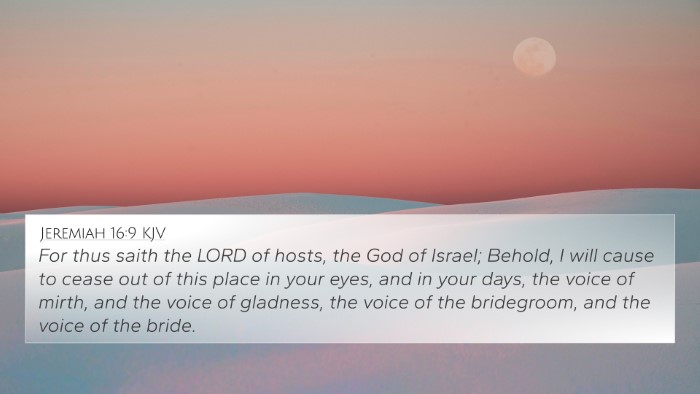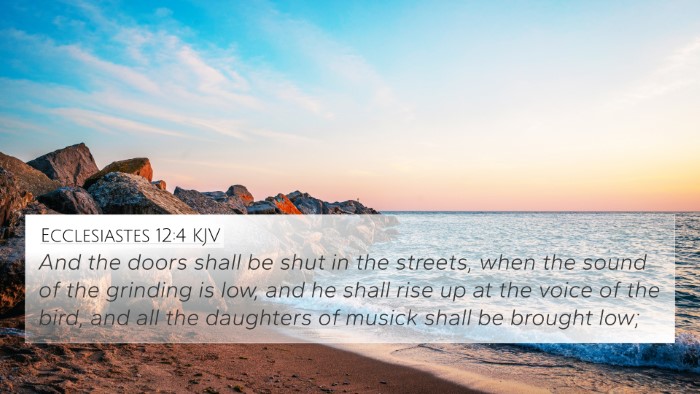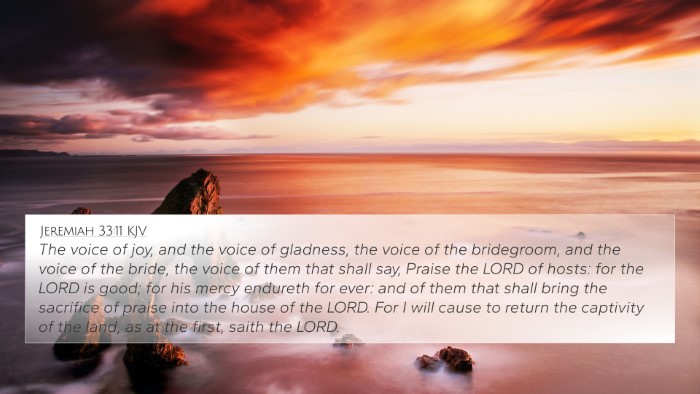Understanding Revelation 18:22
Revelation 18:22 states, "And the voice of harpers, and musicians, and of pipers, and trumpeters, shall be heard no more at all in thee; and no craftsman, of whatsoever craft he be, shall be found any more in thee; and the sound of a millstone shall be heard no more at all in thee." This verse speaks to the finality and utter desolation that will come upon the great city, often interpreted as a symbol of judgment against wickedness and excess.
Contextual Overview
This passage is part of John's vision regarding the fall of Babylon, a representation of a corrupt world system. It serves as a stark reminder of the consequences of turning away from God. Each element mentioned in the verse symbolizes various aspects of life that will cease in this judgment.
Commentary Insights
- Matthew Henry: He emphasizes the totality of loss experienced in Babylon's destruction. Each sound and craft mentioned represents the vibrant life of a community now rendered silent. This symbolizes the end of worldly delights and activities tied to sinful ways.
- Albert Barnes: He suggests that the cease of music and crafts reflects God's judgment on the idolatrous nature of Babylon. The joys and celebrations, once celebrated, now turn into echoes of desolation, stressing the gravity of spiritual judgment.
- Adam Clarke: Clarke focuses on the practical implications of the loss described. He relates the sound of the millstone to daily life and the economic aspects that influence ordinary people, stressing that when the heart of the city is gone, everyday life ceases.
Symbolism of Sounds and Crafts
In this verse, the sounds associated with musicians, craftsmen, and millstones symbolize the death of culture, commerce, and everyday life:
- Musicians and Harpers: They are synonymous with entertainment and joy which will no longer be present, echoing the loss of celebration.
- Crafters: They represent the trade and economic activities that support the community, emphasizing a complete economic ruin.
- Millstones: Their silence signifies the end of sustenance, as this represents the cessation of daily bread production.
Biblical Cross-References
Several other Bible verses resonate with the themes depicted in Revelation 18:22:
- Isaiah 24:8 - "The mirth of tabrets ceaseth, the noise of them that rejoice endeth, the joy of the harp ceaseth."
- Jeremiah 25:10 - "Moreover, I will take from them the voice of mirth, and the voice of gladness, the voice of the bridegroom, and the voice of the bride."
- Ezekiel 26:13 - "And I will cause the noise of thy songs to cease; and the sound of thy harps shall be no more heard."
- Luke 16:23 - "And in hell he lift up his eyes, being in torments..." echoing the theme of eternal separation from joy.
- 2 Peter 2:6 - "And turning the cities of Sodom and Gomorrha into ashes condemned them..." emphasizing God’s judgment.
- Revelation 18:20 - "Rejoice over her, thou heaven, and ye holy apostles and prophets; for God hath avenged you on her."
- Revelation 21:4 - "And God shall wipe away all tears from their eyes; and there shall be no more death, neither sorrow, nor crying..." contrasting the despair in Revelation 18:22.
Thematic Connections
The themes in Revelation 18:22 connect with various scriptural teachings:
- Judgment and Destruction: This theme runs throughout the Bible as God’s justice becomes evident in both the Old and New Testaments.
- Separation from God: Especially relevant in the context of sin leading to spiritual desolation.
- The futility of worldly pursuits: Echoed in Ecclesiastes and the prophecies regarding idolatry in the Old Testament.
Tools for Further Study
To dive deeper into the connections and analyses of Bible verses:
- Use a Bible concordance to find related scriptures that discuss themes of judgment and loss.
- Engage with a cross-reference Bible study to explore similar themes across books.
- Utilize a Bible cross-reference guide to enrich your understanding of scriptural contexts.
Conclusion
Revelation 18:22 provides a sobering depiction of the consequences of turning from God. By examining the combined insights from respected commentaries and scriptural cross-referencing, one can attain a deeper understanding of this pivotal passage. It invites readers to reflect on the brevity of worldly delights in the face of divine judgment, emphasizing the necessity of aligning one’s life with God’s will.
